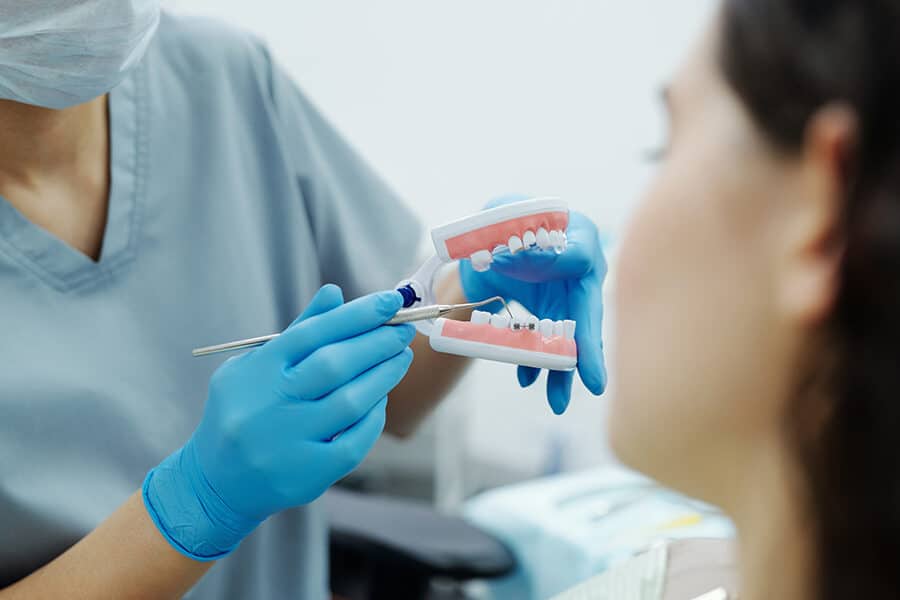When talking about your oral health and dental care, the topic of blood pressure is certainly not a topic most people think of. It may surprise you to know the correlation between these two different areas of health. So, how exactly do the two correlate?
What Exactly Is High Blood Pressure?
According to the Mayo Clinic, High Blood Pressure (also known as hypertension), is a common medical condition in which the long-term force of the blood against your arteries is high enough that it is possible to lead to cardiovascular-related health issues, such as heart disease. It can be a serious problem with minimal symptoms so it is a condition that should be watched closely.
It is determined by two numbers:
Top Number (systolic pressure) – This number measures the amount of artery pressure as your heart beats.
Bottom Number (diastolic pressure) – This number measures the amount of artery pressure in between heartbeats.
So, how does high blood pressure correlate with your oral health?
The Gum and Blood Pressure Connection
Through research from multiple studies including ones from the American Heart Association, it has been found that people who have healthier gums respond better to blood pressure medication. Research has also shown that those who have gum disease were around 20 percent less likely to reach a healthy blood pressure than their counterparts in a good state of oral health.
Among these studies, it has also been found that when periodontitis (gum disease) is effectively treated, blood pressure will drop to a satisfactory condition as well. Though a direct correlation between the two has not been found, it is clear that there is some connection involved.
How Can My Dentist Help With High Blood Pressure?
Because of the correlation between oral health and blood pressure, your dentist will be one of the first to notice if there are tell-tale signs of you having high blood pressure. From the state of your gums to the smell of your breath, and the condition of the rest of your mouth, your dentist can notify you of any negative changes that could mean bad news for your blood pressure. They can then work on fixing your oral health-related issues and help direct you to consult with your doctor on issues outside of their control.
Dental and Non-Dental Ways You Help Yourself With Blood Pressure
Consistently Brushing and Flossing – The best way to keep your oral health in great shape is to brush twice daily and floss consistently. Keep up with dental appointments so that if a problem with your teeth or gums begins to occur, it can be solved as soon as possible. This will help prevent blood pressure problems from occurring from an oral health perspective.
Losing Weight & Exercising – People who have a high body mass index are likely to develop high blood pressure. If you are overweight or obese it puts a pressing strain on your arteries, hindering proper blood flow. Staying in one place for long durations of time can also cause a risk of blood pressure increase. Becoming active for at least some parts of your day can significantly aid in the process of losing weight or maintaining a healthy BMI.
Eating/Drinking The Right Food & Beverages – Consuming large amounts of sugars and fats is bound to be harmful to both your oral and overall health. Keeping your diet balanced will also assist in losing weight & exercising more efficiently.
Limit Smoking Habits – It’s best if you don’t smoke at all, but if you insist on smoking, limiting the amount of tobacco intake will help. This is because of the particles in tobacco which cause the narrowing of blood vessels and increases the way the heart pumps. This leads to high blood pressure.
Never be afraid to speak to your local dentist about any issues concerning your dental health or complications you believe to be associated with your oral health.
